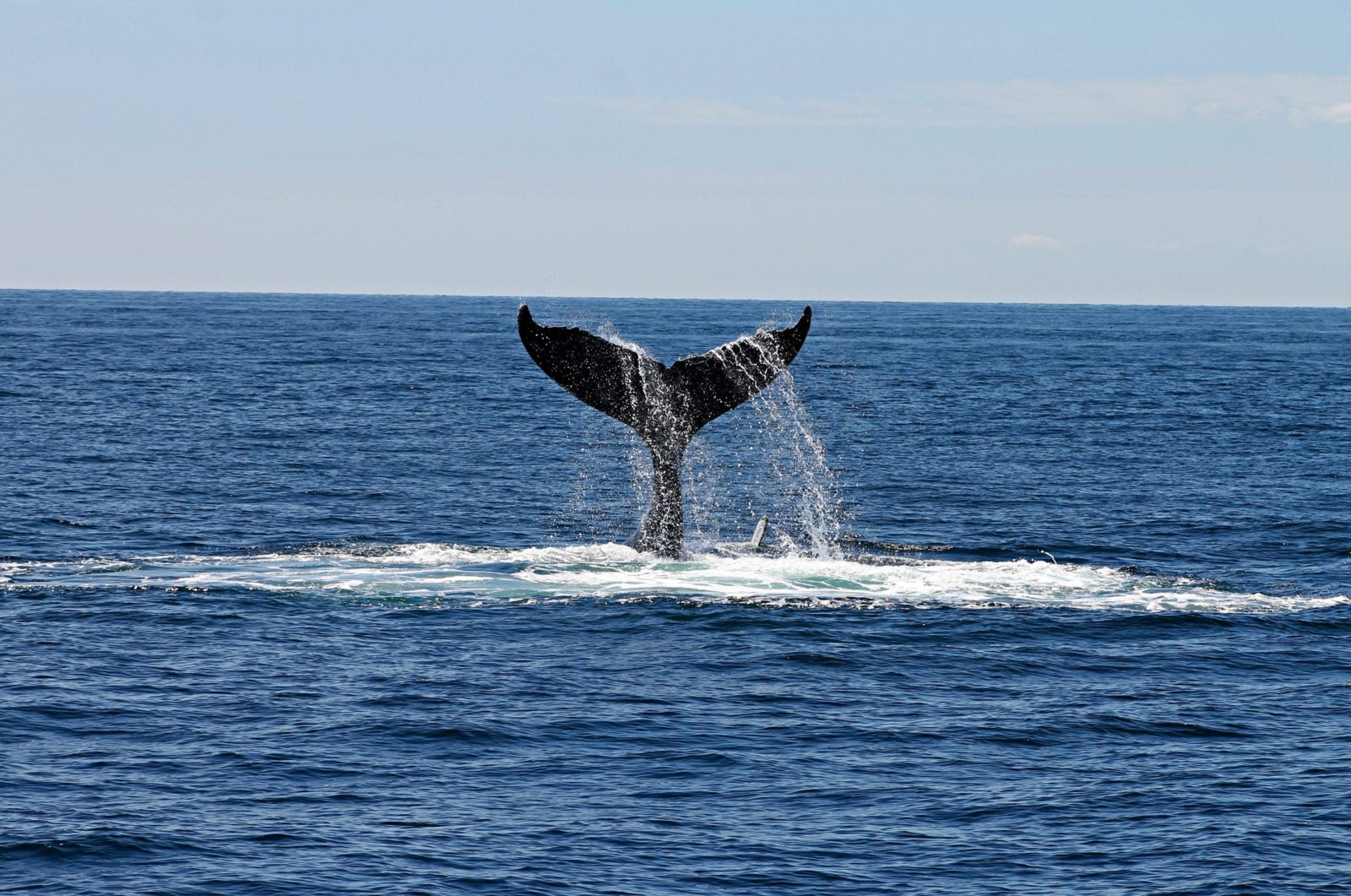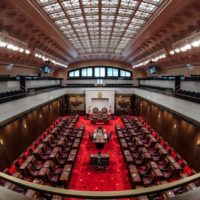
News
Bill C-55 helps protect our oceans: Senator Harder
"The oceans may seem endless, inexhaustible and indestructible, but the opposite is true. The oceans are delicate life systems now in serious decline," said Senator Peter Harder.
Bill C-55 aims to better protect and improve the health of Canada’s oceans by helping to create more marine protected areas off of our coasts.
Senator Peter Harder, the Government Representative in the Senate, delivered the following second reading speech on November 8, 2018.
“Honourable senators, I too rise to speak to Bill C-55, the government’s legislation to better protect and improve the health of Canada’s oceans and indeed the world’s oceans.
This bill, which I should remind senators was first introduced in this chamber in late April of this year and spoken to at second reading in May, will help create more marine protected areas, or MPAs, off of our coasts.
The proposed measures will better conserve ecological integrity, meaning enhanced protection for wildlife populations, biodiversity and the natural life cycles that sustain our fisheries, such as spawning events.
In the bigger picture, Bill C-55 represents an important part of the Government of Canada’s plan to increase protection of Canada’s marine and coastal areas from 7.75 per cent to 10 per cent by 2020, thereby meeting the previous government’s international policy commitment made in 2010. I would hope that we, on all sides, can agree that this bill ought to be sent to committee soon so that we can jointly meet the commitments made by the previous government with this legislation.
At the outset, I want to thank our colleague Senator Bovey for sponsoring Bill C-55 and in particular for her excellent speech in early May.
Colleagues, we live on a blue planet. Phytoplankton and algae in the world’s oceans supply over half of the oxygen we breathe, and provide sustenance and livelihoods to more than a billion people on our planet. The oceans are home to a wondrous array of species, from tiny invertebrates to the biggest creature that has ever existed on earth, the blue whale. But our oceans are in crisis.
The oceans may seem endless, inexhaustible and indestructible, but the opposite is true. Oceans are a delicate life system now in serious decline. Scientific predictions for the future of the ocean ecosystem are sobering indeed.
For example, our planet has already lost half of its coral reefs and intertidal mangrove forests, some of the most productive habitats on earth. We’ve pushed many crucial fish stocks to the point of collapse threatening people’s livelihoods and food security and harming species that rely on these food webs, including seabirds, turtles and marine mammals.
In fact, 60 per cent of the world’s population of vertebrates — comprising fish, birds, mammals, reptiles and amphibians — has been eradicated since 1970 by human activity. This is alarming and upsetting, and the situation requires an urgent answer.
Canada must and can be a leader as we collectively work to change course and practice better stewardship of the natural world. This conservation is not only for the benefit of the next generations, but for the sake of the species we have a responsibility to manage and protect.
Here in Ottawa, Bill C-55 should remind us that Canada is a maritime nation bordered by the Pacific, Arctic and Atlantic Oceans. Of the 13 provinces and territories, 11 have coastlines that span over 244,000 kilometres. Canada’s marine environment covers roughly 5 million square kilometres, an area equivalent to more than half of Canada’s land mass. We are therefore the stewards of a large area of the earth’s oceans.
More than 7 million Canadians live in coastal communities, many of their lives intertwined with the sea economically, culturally and spiritually.
Senator Christmas spoke so eloquently about this connection to the ocean in relation to Bill C-68, the changes to the Fisheries Act. I cannot match him for eloquence or experience, but I would echo his views that we need to protect the natural world. We need to see and understand ourselves as connected to the natural world and do right by it.
Canada’s diverse maritime environments are home to some of the most spectacular marine life in the world and many species are endemic or unique to our seas.
Approximately 1,200 species of fish are native to Canadian waters, along with a wide variety of invertebrates, such as shellfish, crustaceans and the giant Pacific octopus. And there are many kinds of marine mammals, including orcas, belugas and narwhals; grey, bowhead, minke, humpback, right and blue whales; dolphins and porpoises; seals, sea lions, walruses and sea otters; and, of course, polar bears, who spend much of their time on sea ice.
But human activity has finally pushed the oceans to their limit.
Overfished, polluted, filled with plastic and other garbage, carelessly abused and destroyed, and much more fragile and complex than we once thought, the largest living space on earth is fast deteriorating. Its creatures are falling victim to what scientists tell us is the sixth mass extinction in the history of the earth.
This mass extinction is not only well under way, it is accelerating due to human activity. This situation means that Canada’s regional and Indigenous cultures that rely on the sea are also at risk.
Our collective conscience must be engaged.
Honourable colleagues, that is the context of Bill C-55. This is why I hope we will see focused debate on this legislation in the very near term and in committee consideration as soon as possible.
As I mentioned earlier, in 2010, Canada made a commitment to meet marine conservation targets set out in the United Nations Convention on Biological Diversity. This agreement, commonly referred to as Aichi target 11, committed Canada to conserving 10 per cent of its marine and coastal areas through networks of MPAs and other conservation measures by 2020.
As I said earlier, we currently protect 7.75 per cent of our coasts. To help meet Canada’s marine conservation targets, the government will create a network of marine protected areas guided by three foundational principles: science-based decision-making, transparency and advanced reconciliation with Indigenous groups.
The concept of a network of marine protected areas is at the heart of Bill C-55. It enhances the powers and clarifies the responsibilities of the Minister of Fisheries, Oceans and the Canadian Coast Guard to designate these locations and establish such a network.
Bill C-55 also aligns with the government’s objectives surrounding management regimes and zoning systems for marine protected areas, as well as Fisheries and Oceans Canada’s integrated ocean management policies and practices.
If we think of the world as containing a single, unified ocean, Canada’s continued alignment with the International Union for Conservation of Nature, the IUCN, marine protected area framework offers significant value.
First, the interconnectedness of all oceans means the protection of ocean health is an international responsibility. Formal alignment with the IUCN framework will help Canada collaborate with other countries in international research, monitoring and evaluation initiatives.
Second, alignment with the IUCN framework means that Canadian standards will be understood by, and have credibility with, the international community.
With Bill C-55, what practical changes will we see? Currently, it takes seven to 10 years to officially designate an Oceans Act MPA. Through all those intervening years, the potential MPA gets no protection at all. The solution proposed in Bill C-55 is to provide interim protection for these vital, unique areas in Canada’s oceans by means of a ministerial order.
The ministerial order would follow scientific assessments and initiate consultations so that the area may be protected while the rest of the federal regulatory process unfolds. It may still take up to seven years for an MPA to be fully established, but interim protections could be provided within the first two years. An interim protection MPA would protect an area by effectively freezing the footprint of ongoing activities. This means that those activities that had already taken place, within the preceding year, for example, would be allowed to continue.
Allowed or prohibited activities would be determined by the class of the activity, not according to the individual or company conducting those activities. For example, if whale watching was already occurring in a newly created MPA, that activity could be frozen in scale. But it would not be limited to incumbent operators and could include new market entrants. However, any increase in activity in a specific permitted class would be reviewed before being authorized to ensure no cumulative negative impact on the area.
Bill C-55 requires the application of the precautionary principles when deciding whether to designate new MPAs. The precautionary principle means that the absence of scientific certainty should not be used to postpone decisions where there is a risk of serious or irreversible harm.
If passed, this bill will mean that no one can use a lack of information or absolute certainty as a reason for not establishing an MPA, in cases where there is an immediate, high risk. The proposed amendments will standardize the process for creating new MPAs and guarantee their protection.
These amendments will require collaboration, which means that Indigenous partners, provinces and territories, industry and other stakeholders will have to participate in creating and managing MPAs
Going forward, MPAs will be an important part of ensuring that Canadians who depend on fishing, whether for shellfish, finfish or other marine organisms like squid, can count on their livelihoods being protected over the long term. It is all about sustainability. In other words, if you give a man a fish, he may eat for a day, but if you keep a community marine-area protected, it will flourish for generations.
It’s also important to note that Bill C-55 proposes amendments to the Canada Petroleum Resources Act that would complement the freeze-the-footprint process of an interim marine protected area. These changes would provide the minister with the authority to prohibit previously authorized oil and gas exploration or development activities, such as seismic testing, drilling or production, within a designated marine protected area. However, Bill C-55 provides for compensation to the interest owner for cancellation or surrender of such an interest.
I would also emphasize these changes do not affect the offshore agreements in Atlantic Canada.
Another reason that Bill C-55 is important is that it will contribute to the reconciliation with Indigenous partners on a nation-to-nation basis. Indigenous peoples are rights-holders in conservation planning and management, and their authorities, leadership and expertise are essential to marine conservation. MPA designations must respect Indigenous people’s constitutionally protected inherent and treaty rights.
For these reasons, I hope you will join me in supporting Bill C-55 and focus our debate on this legislation in the near term so we can advance the bill to committee for in-depth review.
To close, in thinking about the sad state of our oceans and the considerable challenges that lay before us in protecting them, I wish to quote one of my favourite theologians, Dietrich Bonhoeffer, when he said:
‘The ultimate test of a moral society is the kind of world it leaves to its children.’
This bill, in part at least, gives us in the Senate of Canada an opportunity to answer that statement with a demonstrated willingness to meet that moral test.”




















































